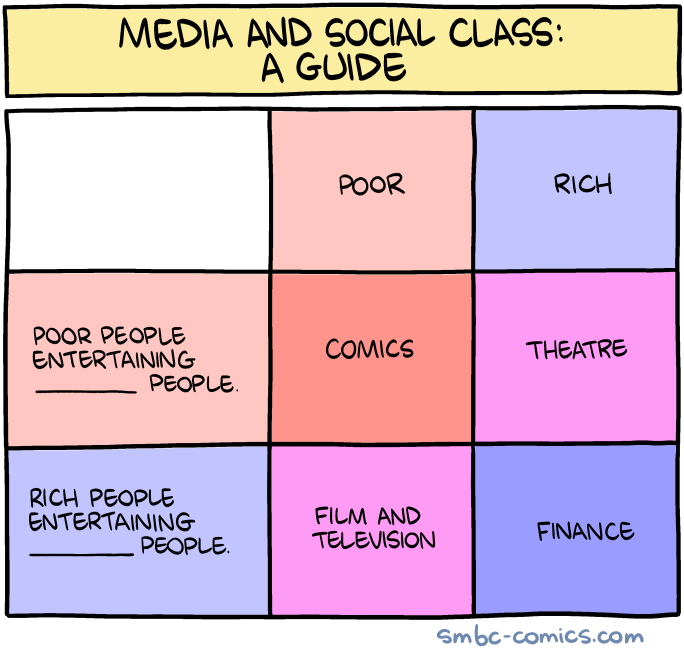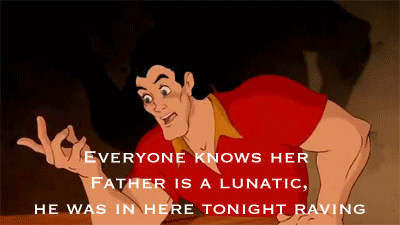There are three things people get wrong about the prosecution and heartbreaking suicide of Aaron Swartz.
Two of those things are about the criminal justice system. They're disturbing, but not difficult to talk about.
The third thing is about depression. It's very difficult to talk about.
But I'm going to talk about it anyway.
The First Thing: Most Of What You Hear About Federal Sentencing Is Wrong.
First, people are wrong about what sort of sentence Aaron Swartz faced. They get it wrong because the media usually does a terrible job reporting on federal sentencing.
If you read about the Swartz prosecution, you saw people decrying the fact that he was facing 35 years in prison. That's more than rapists and murders serve, they say. But they are talking about the maximum possible sentences, not any sentence he was remotely likely to get. Recently in the context of another case I explained how federal sentencing works, and how it's driven by an arcane set of rules producing a recommendation that federal judges often follow — rules that on most occasions produce a result well below the maximum possible sentence.
There are a few reasons you keep hearing about maximum sentences in the media. The first is that federal sentencing is very complicated. Journalists not trained in the federal sentencing guidelines have a difficult time applying them, and prosecutors and defense attorneys are generally reluctant to give estimates. The second reason is that the government promotes misunderstanding by citing the maximum punishment in press releases, despite knowing it has very little to do with actual sentences.
The government does that for deterrence. The government does it to sound impressive. But I think the government also cites those maximum sentences because doing so obscures the vast power and discretion that federal prosecutors actually wield in federal sentencing. The sentencing guidelines provide a rather modest reduction in sentence to defendants who plead guilty. But prosecutors, by deciding which theories to pursue, can threaten a far greater gulf between a sentence after trial and a sentence after a guilty plea.
Swartz' lawyers say the government offered to recommend six months in jail if he pleaded guilty, but threatened to seek seven years if he went to trial. If the sentence is driven by a set of rules, how could they credibly make such a threat? It's because Swartz' guidelines calculation would have been driven by concepts like "relevant conduct" (that is, what actions should be considered for purposes of sentencing, whether or not those actions were charged as crimes) and "actual or intended loss" (that is, the harm done, or intended to be done, or the value taken, or intended to be taken). These are malleable concepts; the government can apply them aggressively, threatening a far longer sentence, or gently, driving a far shorter one. For instance, in prosecuting Andrew Auernheimer under the same computer fraud statute they used against Swartz, the federal prosecutors argued that the "loss" in the case included AT&T's cost of mailing tens of thousands of notifications to iPad users, thus driving Auernheimer's sentence to 41 months. Orin Kerr — who is taking on the appeal pro bono — explains:
The largest part of Auernheimer’s sentence was due to an alleged $73,000 in loss suffered by AT&T. Under the provisions of the Sentencing Guidelines associated with 18 U.S.C. 1030, sentences are based primarily on the amount of loss caused by the crime. More dollar loss to the victim means more time in prison for the defendant. The dollar loss is calculated based on “[a]ny reasonable cost to any victim, including the cost of responding to an offense, conducting a damage assessment, and restoring the data, program, system, or information to its condition prior to the offense, and any revenue lost, cost incurred, or other damages incurred because of interruption of service.” In this case, however, AT&T did not claim any loss to its computers from the conduct. There was no interruption of service and no cost of restoring data or conducting a damage assessment. Instead, the sole assertion of loss was based how AT&T decided to notify its customers that their e-mail addresses had been obtained by Spitler and Auernheimer. First, AT&T notified its customers by e-mail. That was free, leading to a “cost” so far of zero. But then AT&T decided to follow-up the e-mail notification with paper letter notification, and the postage and paper costs amounted to about $73,000. Auernheimer’s 41-month sentence was based in substantial part on that $73,000 in loss, and he was also ordered to pay restitution in that amount.
The government can play hard or play easy. In most districts federal judges rely heavily on a Presentence Report prepared by the Probation Office that offers a proposed sentencing guideline calculation. The government decides what to send the Probation Office and what stance to take with them. In Auernheimer's case the government could easily have not bothered to send the Probation Office anything about the mailing cost, or could have said in their view the connection between the crime and the cost was too remote; it's very unlikely the Probation Office would have recommended the higher sentence, or the judge would have imposed it, if the government hadn't pushed for it. Similarly, in Swartz' case, the government could have asserted that Swartz' actions caused no loss — which was probably behind their six-month offer — or it could have taken an aggressive stance that the court should calculate loss based on the value of all of the JSTOR articles he downloaded, or the cost of MIT's investigation, or some other theory that would have resulted in a high dollar figure. Federal prosecutors don't always prevail when they take those tough stances. But they prevail often enough to make the threat entirely credible.
So: the injustice of Aaron Swartz' prosecution was not that he faced a theoretical maximum of 35 years, because that number has no particular connection to any likely sentence. The injustice was that the federal government had vast power to drive his sentence to coerce him into a plea — vast power that overwhelms the limits contemplated by the federal sentencing guidelines. What is worse, that vast power is only infrequently reported and only dimly understood.
The Second Thing: If You Think Aaron Swartz Was Singled Out For Unusual Treatment, You Aren't Paying Attention.
Second, people are wrong if they think Aaron Swartz was singled out for treatment that other more obscure people don't face every single day.
The reaction to Swartz' suicide was tribal. This was someone people knew, recognized, admired, followed, loved. People in communities that cared about Aaron Swartz were outraged by the allegations of prosecutorial misconduct, by the seeming lack of proportion displayed in the charges against him, by the arbitrary nature of him being charged when so many others who "hack" are not, by the pressure to plead guilty that he faced.
It's good to be outraged by these things. It's not good to think they are unique, or only unusual. It's not good to care only when this happens to your tribe.
Scott Greenfield, blogger and defense attorney and truth-talker, put it as bluntly as it can and should be put in several posts:
But there remains a side of this tragedy that the geek community misses. Government overreaching, "bullying" as Lessig calls it, didn't start on the day Aaron Swartz was arrested. The eulogists, friends, watchers from the Hacktivist side seem to think this was an affliction that happened only to Swartz.
Hardly. Aaron Swartz was just today's victim of government overreaching and abusive prosecution, largely undistinguishable from the multitudes who came before him. But you don't know about them, as they weren't 14-year-old RSS code writers. So you didn't notice. You didn't care. They didn't exist to you, even as they faced 50 year sentences just like Swartz.
Greenspun continues:
"A daunting prospect for anyone. Apparently too daunting for a 26-year-old."
Absolutely daunting, as it is for the tens of thousands of others who were forced to endure the unwanted attention of the government.
So it wasn't on the radar of the computer geeks until one of their own was the target? They weren't aware of how daunting it was for all the others who came before Aaron Swartz, some younger than the 26-year-old, some with children whose lives would be ruined because of a parent's stupidity, some who, like Swartz, did wrong but certainly nothing wrong enough to justify the government laying waste to their lives? These cases, these lives, were the precursors to the harsh treatment of Aaron Swartz, and yet you didn't know or care that any of this was happening because it didn't touch someone you knew.
Now you know what we know. Will your anger and interest end when Aaron Swartz is buried, and you can go back to writing code and thinking cool ideas? If you want to honor his memory, perhaps you might want to put all those brilliant minds to use changing the system that drove Swartz to take his own life. It's still here, and it's still just as bad as it was in Swartz's case. And it will continue to be, even as you move back to your more pleasant pursuits.
People think the system failed or abused or singled out Aaron Swartz. This is the system, dammit, and if you think that Aaron Swartz faced what he did because he's a hacker and the government has it out for hackers, then I'm here to tell you that you're full of shit. Aaron Swartz had a great, well-funded defense team and a healthy support system. Most people don't. If you read this blog, you know the types of things the system does to people, including people with far less ability to fight back. The system sends sick people to their death in a system that can't care for them because they smoked weed. The system denies its prisoners medical care until they have to have their genitals amputated in a fruitless effort to delay an early death from cancer. The system sticks people into cells and very literally forgets them until they've spent a few days drinking their own urine. The system strives and strains to execute people based solely on the word of serial perjurers — serial perjurers whose record of perjury they have concealed from the defense. The system prizes junk science so long as that junk science supports its allegations. The system treats invocation of constitutional rights as evidence of guilt. The system reacts with petulant fury to being questioned. The system detects and punishes law enforcement and prosecutorial misconduct so rarely that bad actors are hardly ever subjected to real consequences.
These things happen every day to people less photogenic, talented, and charismatic than Aaron Swartz. You care, or you don't. If you only care about Aaron's case, or the cases of people in the same tribe as Aaron, you're not a serious person.
The Third Thing: People Assume They Understand Depression. Most Don't.
The third thing people don't get is depression.
People think that the prosecution of Aaron Swartz must have been unusually oppressive and abusive, because only a rare abuse of power could have driven such a brilliant and promising young man to suicide. People saying that may have been depressed at some point in their life — but they haven't experienced the disorder major depression.
I have. I've fought it for fifteen years. People — people of good faith, sensitive people, thoughtful people, smart people — don't tend to fathom major depression if they haven't had it.
Depression is not like sadness. Everyone has been sad. Everyone has been depressed on one occasion or another. But clinical depression is something else entirely.
What is it like?
Forgive me, but I'd like for you to imagine the worst day of your life. Maybe someone you love was killed in an accident. Maybe a loved one got a terrifying diagnosis. Maybe you abruptly lost a job you need to support your family. Maybe you caught your husband or wife cheating on you. Maybe you found out your son or daughter is addicted to drugs. Maybe you experienced some dreadful public humiliation.
Remember how that felt, at the worst part of that day? Now imagine you feel that way most of the time, for months at a time.
Think of the most stressed and worried you have ever been in your life, and then imagine that your stomach feels like that all the time.
Imagine that you are constantly gripped with overwhelming feelings of dread and crushing hopelessness — irrational, not governed by real risks or challenges, but still inexorable.
Imagine that you are often fatigued to the point of weakness and irritability because you can't get to sleep until late at night, or because your mind consistently shakes you awake at four in the morning, racing with worry about the day's activities as your stomach roils and knots.
Imagine that most social interactions become painful, the cause of nameless dread. Imagine that when the phone rings or your computer dings with a new email you get a short, hot, foul shot of adrenaline, sizzling in your fingertips and bitter in your mouth.
Imagine that, however much you understand the causes of these symptoms intellectually, no matter how well you know that you are fully capable of meeting the challenges you face and surviving them, no matter how well you grasp that these feelings are a symptom of a disease, you can't stop feeling this way.
Imagine that you have moments — maybe even minutes — where you forget how you feel, but those moments are almost worse, because when they end and you remember the feelings rush back in like a dark tide that much more painfully.
Imagine that you know you should talk to someone about how you feel — but you can't bring yourself to do so. Have you ever been so nauseated — from illness or from drinking — that you can't bear for someone to touch you or talk to you? Imagine feeling like that — that the human interactions that might ease the pain are too painful to endure, that every word on the subject is a blow.
After a while, this wears you down a bit.
I can't know what was in Aaron Swartz' mind. But I know this: if he suffered from major depression, it may not have been the prospect of federal prison that was intolerable. It might have been the prospect of thinking about the case, about talking about it, about the weight of people's concern for him, about the crawling discomfort of answering their questions, about the brutal fatigue of putting on a game face every day.
If Aaron Swartz had major depression, he might have felt overwhelmed by far less unusual or frightening stimuli. That doesn't exculpate the government. The government is responsible for an unjust prosecution. But the depression may have taken Aaron Swartz' life.
Depression doesn't look like you think it does.
Some people think that Aaron Swartz must have been driven to suicide by extraordinary treatment because he didn't act the way a depressed person at risk of suicide acts. They think, correctly, that Aaron Swartz was an extraordinary man: brilliant, very accomplished at a young age, with a gift for winning people over. That's not what a depressed person looks like, is it? Surely someone in enough pain to take their own life would be more overtly distressed, more visibly unable to cope. Surely someone who finds human interactions so difficult would not be so good at them.
In fact, people with major depression are capable of great things, including great leadership. Consider these:
Abraham Lincoln once wrote, "I am the most miserable man alive. To remain as I am is impossible. I must die or get better." Winston Churchill echoed the same reaction when he told his doctor, "I don't like to stand by the side of a ship and look down into the water. A second's action would end everything. Is much known about worry, Charles?"
This is good, in a way: it means that depression is not an impediment to achieving great things. But it also means this: you might not be able to tell if someone suffers from depression.
People with depression become very adept at maintaining good appearances. Consider what this brave reporter wrote during her paper's series on mental health:
I have been hospitalized twice for “suicidal ideation,” most recently for eight days in 2009 with a diagnosis of “major depressive order and anxiety disorder,” according to my records. I take four medications a day and have my counselor’s name and number in my emergency contacts on my cell phone.
This will be news to most of the people who know me, family members included. That’s because with lots of help from my husband, a lot of exercise (one of my therapies) and medication, I’m able to keep my depression and breakdowns private.
. . . .
Most people with a mental health disorder are able to manage their illness, many so well that our disorders are invisible outside our homes. With the help of counselors, medication, even hospitalizations, we work, raise families, volunteer in our communities, run companies, hold elected office and go to school with little indication of what’s at work inside us.
And even inside their homes . . . even to those closest to them — people with depression can put on a brave face. Aaron Swartz' girlfriend believes that his death was "not caused by depression," in part because he did not show the familiar signs of depression in his last days. I mean her no disrespect — she has my profound sympathy for her grief — but she might not know, even if she knows him better than anyone. She might not fully grasp how he felt. That's not a reflection on her, or on her relationship with Swartz. It's a reflection of depression. Many loved ones will learn to see the subtle signs. For instance, my wife interrogates me when I stop blogging for a while. But being close to someone with depression is not the same as having depression yourself, and doesn't mean you really understand it. My wife is the love of my life and my best friend and a talented and remarkably empathetic clinical psychologist. But she doesn't fully get it, and I pray she never will, because she hasn't experienced it. Not everybody shows overt mood swings. Not everybody retreats from the world. Some people soldier on, their outward face may not reflecting how they feel. Many people with depression don't want to burden loved ones with the depth of their feelings. Many don't want to discuss their feelings because that human interaction is so painful in the depths of depression. And many are ashamed.
Shame is powerful. A ridiculous percentage of the population takes psychotropic medications, but there are still strong social taboos against discussing mental illness, and certainly against admitting to suffering from it. That, too, inhibits people from talking about their feelings. People worry that if they admit to depression, it will be used against them. Indeed, I suspect that this post will be used against me, if not by a litigation opponent than by one of my various stalkers. (Come at me, bro!)
My point is this: it's a mistake to conclude you know about how Aaron Swartz felt because you observe how he acted and what he achieved. It's a mistake to use Aaron Swartz' tragic suicide to measure the nature of the government's prosecution with him. There are many things to condemn in that prosecution, and further inquiry may reveal serious misconduct. But if someone suffers from depression, you can't infer things from their reactions the way you can from someone who doesn't suffer. It's very difficult, if you haven't experienced it, to imagine what it feels like, and even more difficult to imagine how it distorts your reaction to stress. I don't mean to excuse prosecutors. I mean to point out that life is complicated. It's entirely possible that, simultaneously, the government wantonly overreached and that Aaron Swartz' death was driven primarily by a pain that would have tormented him even if he had never been charged.
If people reacted to Aaron Swartz' death by becoming concerned with how the criminal justice system treats everyone, and by being open to discussions of how depression changes people, that would be one more way he left the world better than he found it.
(By the way, I'm just fine. Thanks for asking.)
Three Things You May Not Get About the Aaron Swartz Case © 2007-2013 by the authors of Popehat. This feed is for personal, non-commercial use only. Using this feed on any other site is a copyright violation. No scraping.








 In this article, Eric Niebler discusses an issue of API design regarding the age-old question of out parameters versus return-by-value, this time in light of move semantics. He uses
In this article, Eric Niebler discusses an issue of API design regarding the age-old question of out parameters versus return-by-value, this time in light of move semantics. He uses 



